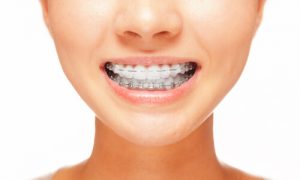What to Do in Case of Orthodontic Emergencies
Don’t Let Emergencies Catch You Off-Guard
 Orthodontic emergencies can be unsettling, especially when they occur outside of regular dental office hours. Whether you wear braces, aligners, or any other orthodontic appliance, it’s essential to be prepared and knowledgeable about what to do in case of orthodontic emergencies. Learn more from Dr. Stephen Grussmark, one of the top orthodontists in Miami, FL, and other areas in Dade County.
Orthodontic emergencies can be unsettling, especially when they occur outside of regular dental office hours. Whether you wear braces, aligners, or any other orthodontic appliance, it’s essential to be prepared and knowledgeable about what to do in case of orthodontic emergencies. Learn more from Dr. Stephen Grussmark, one of the top orthodontists in Miami, FL, and other areas in Dade County.
What Constitutes an Orthodontic Emergency?
While some situations may be more urgent than others, it’s essential to be aware of what constitutes an orthodontic emergency. By understanding the signs and symptoms, you can take the appropriate steps to address the issue promptly:
- Severe pain
- Trauma or injury
- Loose or broken appliances
- Excessive swelling or bleeding
- Impaired function
- Poking wires or sharp edges
What to do in Case of Orthodontic Emergencies
Loose or Protruding Wire
 A loose or protruding wire can be irritating and cause discomfort. If you find yourself in this situation, follow these steps:
A loose or protruding wire can be irritating and cause discomfort. If you find yourself in this situation, follow these steps:
- Do not attempt to cut the wire yourself.
- Try to push the wire back into place using a cotton swab or pencil eraser.
- Apply orthodontic wax to the area for temporary relief.
- Contact your orthodontist for an appointment to fix the wire.
Broken or Loose Bracket
A broken or loose bracket can be a common orthodontic emergency. To manage this situation effectively:
- Avoid touching the bracket or wire with your fingers or tongue.
- Apply orthodontic wax to prevent further discomfort.
- Contact your orthodontist to schedule a repair appointment.
Discomfort or Soreness
Orthodontic appliances can sometimes cause discomfort or soreness when first adjusted. Here’s what you can do to alleviate the discomfort:
- Rinse your mouth with warm saltwater to soothe the sore areas.
- Apply a warm compress to the outside of your mouth to reduce inflammation.
- Take over-the-counter pain relievers as directed.
- Avoid hard or chewy foods that may aggravate the soreness.
Irritation or Sores in the Mouth
Occasionally, braces or aligners may cause irritation or sores in the mouth. Follow these steps to find relief:
- Rinse your mouth with a mixture of warm water and salt.
- Apply orthodontic wax to the irritating area.
- Use an over-the-counter oral anesthetic gel for temporary relief.
- Contact your orthodontist if the irritation persists or worsens.
Knocked-out or Broken Tooth
In the event of a knocked-out or broken tooth while wearing braces or aligners, take these immediate actions:
- Handle the tooth by the crown (top) and avoid touching the root.
- Gently rinse the tooth with water if it’s dirty.
- Try to place the tooth back in its socket without applying force.
- If reinsertion is impossible, store the tooth in a container of milk or saliva.
- Seek immediate dental attention for the best chance of saving the tooth.
How to Prevent Orthodontic Emergencies
While it’s not always possible to prevent orthodontic emergencies entirely, there are steps you can take to minimize the risk:
- Maintain good oral hygiene by brushing and flossing regularly.
- Follow your orthodontist’s instructions regarding diet and oral care.
- Avoid hard, sticky, or chewy foods that may damage braces or aligners.
- Wear a mouthguard when participating in sports or physical activities.
Visit Dr. Grussmark With Any Questions or Concerns
Knowing what to do in case of orthodontic emergencies can make a significant difference in handling unexpected situations with confidence and ensuring the best outcome for your orthodontic treatment. By being prepared, you can effectively manage any orthodontic emergency that comes your way.
Dr. Grussmark is here for you in your time of need. Contact our Miami, FL, office by calling (305) 441-1200 or filling out our online form.

